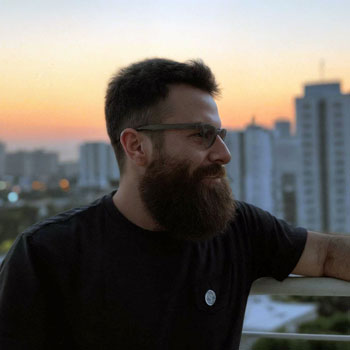YouTube's AI Tools Change Everything for Creators

I've been watching AI quietly remove friction for creators everywhere. YouTube's latest move feels like the biggest step yet.
When I first heard about their new AI suite for Shorts creators, my reaction was simple: game-changer—again. But this time, something different caught my attention.
These tools aren't just making creation easier. They're fundamentally changing who gets to play.
The Friction Removal Pattern
Over the past couple of years, I've watched AI steadily chip away at the tiny roadblocks that usually slow creators down. The pattern is everywhere once you start looking.
Tools like Descript already let anyone clean up audio and remove filler words in minutes. What used to require a skilled video editor and a day of work is now a few clicks.
ChatGPT and similar tools help draft scripts and social captions in a fraction of the time. You start from a 70% draft so you can spend your energy on the final 30% that makes it yours.
Midjourney and Canva's Magic Studio mean you don't need design training to create professional-looking visuals.
YouTube's new AI tools follow this exact pattern. Their Veo 3 integration lets creators generate video backgrounds with simple text prompts. The "Edit with AI" function transforms raw footage into polished videos complete with music and voiceovers.
Suddenly, someone with nothing more than a phone and an idea can produce content that looks like it came from a mini production studio.
The Real Question Nobody's Asking
Here's where it gets interesting. If everyone can produce slick, studio-level videos overnight, how do you stand out?
YouTube Shorts already sees 200 billion daily views with explosive growth. The competition is fierce. Add AI tools that can polish anyone's content, and you've got a fascinating problem.
Most people are focused on the technical capabilities. I'm more curious about what happens when technical barriers disappear entirely.
When editing skills, design knowledge, and production quality are no longer differentiators, what's left?
Why This Actually Helps Anti-Expert Creators
This is where things get counterintuitive. These AI tools might actually favour authentic voices over polished professionals.
Think about it. When everyone has access to the same production quality, audiences will start valuing something else entirely. Your unique perspective. Your authentic journey. Your willingness to share before you're ready.
The creators who've been documenting their learning process, sharing their struggles, and building genuine community connections suddenly have a massive advantage.
They're not trying to fake expertise they don't have. They're sharing real experiences with people who relate to their journey.
AI handles the technical polish. Authenticity handles everything else.
The Democratization Effect
What YouTube has done represents something bigger than just new features. They've removed the last major barrier between having an idea and sharing it with the world.
Research shows that content democratization eliminates traditional price and technology barriers that restricted creation to fewer people. You no longer need to be in the "creative" industry to participate.
This aligns perfectly with what I've been saying about the anti-expert approach. You don't need years of training or expensive equipment. You need something to say and the willingness to say it.
The tools handle the rest.
What This Means for You
If you've been waiting to start creating because you don't have the right equipment or skills, that excuse just evaporated.
If you've been worried about production quality holding you back, YouTube just leveled that playing field.
The question becomes: what's your unique angle? What perspective do you bring that nobody else can?
Your messy, imperfect journey through learning something new might be exactly what people want to see. Especially when it's wrapped in professional-looking video that AI helped you create.
The friction is gone. The barriers are down.
What are you going to build?

